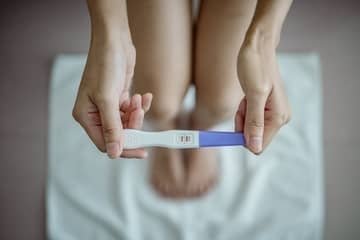
Is caffeine dangerous during pregnancy?
Coffee or caffeine during pregnancy represent a big scare for many expectant mothers. A cup of coffee every morning has been a ritual until now, but during pregnancy they suddenly have to get rid of it. Is it really so? Is caffeine so dangerous during pregnancy?
A woman must make certain changes in her eating habits during pregnancy, something must be limited, something must be completely excluded, and on the contrary, it is advisable to increase the intake of some foods. And what about drinking coffee during pregnancy and the effects of caffeine in general? Is it necessary to become "abstinent" for 9 months? The opinions of experts, doctors and researchers are sometimes slightly different. However, there is agreement on one thing, coffee during pregnancy does not have to be a complete taboo.
The scientific community has been dealing with the effects of coffee on the human body for a long time. The World Health Organization (WHO) has set a safe daily dose of caffeine at a maximum of 300 mg. The American Association of Obstetricians and Gynecologists has set the limit lower at around 200 mg of caffeine per day. Realistically, the safe level of caffeine can range somewhere between 150 to 300 mg of caffeine in a daily dose. It is quite difficult to determine how many coffees a day this means, because there are various high-quality ground or instant coffees available on the market. The caffeine content can be diametrically different. In general, 1 or 2 cups a day during pregnancy does not pose any risk to the pregnant woman or the baby in the womb.
However, not only coffee contains caffeine. Such black or green tea contains theine, which is another name for caffeine in relation to tea leaves. If 30 ml of espresso contains approximately 30 to 50 mg of caffeine, a 240 ml cup of loose black tea contains approximately 25 to 50 mg of theine (caffeine). What does it mean? Add tea, chocolate or cola to your dose of caffeine. Under no circumstances should you take caffeine in the form of energy drinks. The danger of caffeine intake is therefore primarily if you regularly receive a higher than recommended dose.
Caffeine is a stimulant and increases blood pressure, which can also be manifested by a higher heart rate. High pressure in pregnancy is not desirable. During pregnancy, but also outside of it, increased caffeine intake can cause insomnia or irregular sleep patterns. Caffeine is also a diuretic, which is unpleasant for a pregnant woman. The biggest risk of exceeding the dose of caffeine is that it can be absorbed through the placenta. However, the child cannot process caffeine.
Animal testing has shown that excessive caffeine intake can cause negative metabolic changes in the fetus, lower birth weight, premature birth or spontaneous abortion. New research, such as an observational study by Professor Jack E. James, points out that it is advisable to take no more than 200 mg of caffeine per day, while it is impossible to establish a safe amount with certainty, and they recommend significantly limiting regular caffeine intake during pregnancy. If you also ask about coffee while breastfeeding, the same applies as during pregnancy. It is important not to exceed the daily dose of caffeine, so that a larger amount does not enter the breast milk.
If you are looking for a substitute for coffee and you don't want to take unnecessary risks that an excessive caffeine level could harm you or your baby, you can reach for decaffeinated coffee or wheat coffee drink Caro.
Pridať komentár







